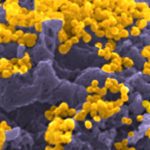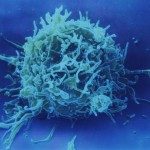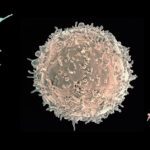Présentation
Human infections caused by hepatitis B virus (HBV) are major healthcare issues. Despite available effective vaccines, more than 250 million individuals worldwide are chronically infected by HBV, which accounts for approximately 1 million deaths per year. To date, there is no approved specific and direct antiviral treatment to cure from chronic HBV infection. Strikingly, on a fundamental side, investigations on the humoral responses to HBV are lacking. Indeed, despite that antibodies may play a crucial in clearing HBV in naturally cured individuals, and in protecting them against re-infection, no deep and fine characterization of the humoral immunity to HBV has been performed so far. Hence, the global objective of the proposed project is to understand the molecular and functional basis of the memory B-cell and serum antibody responses to HBV. Our research proposes to: (i) investigate the memory B-cell responses against HBV in functionally cured individuals who experienced a spontaneous remission after chronic infection and chronically-infected donors (ii) dissect the antiviral properties of human HBV memory antibodies. To this end, we will capture, clone and characterize at a molecular and functional level, in vitro and in vivo, recombinant human monoclonal antibodies directed against the HBV surface antigens from blood HBV-specific memory B cells of infected and cured humans. To go further, we also propose decoding the humoral immunity to HBV in large cohorts of functionally cured individuals using a systems serology approach. This project should allow uncovering the humoral correlates associated with the natural control of HBV infection. From a more translational point-of-view, the long term-goal of this study aims at making use of this knowledge to develop new therapeutic strategies particularly, immunotherapies using potent cross-neutralizing HBV human antibodies.
To examine in a first study the protective humoral response against HBV, we cloned and characterized human antibodies specific to the viral surface glycoproteins (HBsAg) from memory B cells of HBV vaccinees and controllers. We found that human HBV antibodies are encoded by a diverse set of immunoglobulin genes and recognize various conformational HBsAg epitopes. Strikingly, HBsAg-specific memory B cells from natural controllers mainly produced neutralizing antibodies able to cross-react with several viral genotypes. Furthermore, monotherapy with the potent broadly neutralizing antibody Bc1.187 suppressed viremia in vivo in HBV mouse models and led to post-therapy control of the infection in a fraction of animals. Thus, human neutralizing HBsAg antibodies appear to play a key role in the spontaneous control of HBV and represent promising immunotherapeutic tools for achieving HBV functional cure in chronically infected humans (Hehle*, Beretta*, et al 2020).







